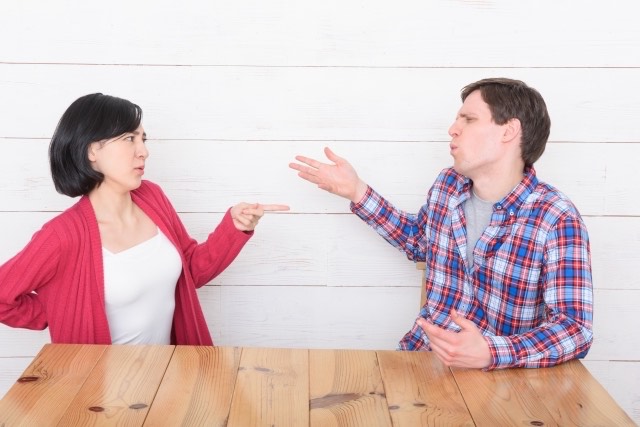Don’t let your inability to speak Japanese keep you from trying to meet Japanese women. Moreover, don’t think you’re limited to the pool of Japanese women who are hell-bent on meeting, dating, and marrying an English speaker.
You don’t have to speak Japanese to be able to meet Japanese women. But unlike in many other countries, the fact a woman’s educated doesn’t mean she can speak English. You can’t default to it like you would in many other countries. The keys to meeting Japanese women if you speak little or no Japanese is to understand their limits and that many of them can get by in English (often very well), understand the attraction of English to Japanese ears, and adjust/simplify how you speak English. This doesn’t mean that speaking Japanese doesn’t help. It does! Big time. But I’ve known dozens of guys who were either new to Japan or had been here many years and only picked up a handful of survival phrases.
Many Japanese women speak some English
If you spend any time speaking English with Japanese, you’ll soon hear the confession, “we have studied English for at least 6 years in junior high and high school.” It’s actually longer for many, as many Japanese have been taking cram school lessons and going to “English conversation” lessons since they elementary school. Preschool even.
 Even if they’re not fluent, women often love to practice their English as long as you don’t make them feel embarrassed about it.
Even if they’re not fluent, women often love to practice their English as long as you don’t make them feel embarrassed about it.
It is, however, certainly a mystery how one can study a language for 6+ years and pass a university entrance test proving their ability, but still can’t hold a simple conversation. Much has been written on that. Accept it and work with what you have. Until you’re good at Japanese, you’re in no place to judge.
Many Japanese women want to be with an English-speaking man
Or at least try it. They’ve been raised with Western movies and English lessons. They tire of unemotional, fetishistic Japanese guys. They long for escape from the routine. Or they may have must more deeply and intelligently formed reasons. Or it’s just sexual attraction to the other.
Even if you speak Japanese, they might prefer to speak English when you’re with them. Many Japanese-speaking foreign men in Japan have found that when they’re alone with their Japanese girlfriends, the two of them default to speaking English, since her English is often better than his Japanese. I find it’s a sort of negotiation. I’ve been with girls who were really happy to speak Japanese with me from the start, even if they spoke English.
But don’t get carried away thinking you’re still Charisma Man. The days of Western men rocking up to Japan and getting praise and attention heaped on them are gone gone gone. These days, Japanese women are just as likely to prefer Korean men. Americans’ status has also dropped precipitously in the post-Clinton era. The Bush administration did huge damage for America’s image as a strong friend. Obama was cool, but by then, China was already picking up steam. And Trump is simply a joke. A curious aside is the emergence of Putin as a sex symbol. He seems to epitomize Western strength and masculinity when American men have lost their way.
Many Japanese women don’t expect foreign men to know how to speak Japanese
 If you do speak some Japanese, they’ll likely be impressed – and it will be considered a “bonus” in your favor. If you don’t, then you’re just a normal foreigner. The overwhelming influx of inbound tourists before the pandemic did nothing to dispel this. As a long-term Japan resident, it’s become far more common to be spoken to in broken English. Now, many other foreigners have complained about this phenomenon, but I haven’t commonly encountered it. Only in places like Kyoto, where most white foreigners are passing through.
If you do speak some Japanese, they’ll likely be impressed – and it will be considered a “bonus” in your favor. If you don’t, then you’re just a normal foreigner. The overwhelming influx of inbound tourists before the pandemic did nothing to dispel this. As a long-term Japan resident, it’s become far more common to be spoken to in broken English. Now, many other foreigners have complained about this phenomenon, but I haven’t commonly encountered it. Only in places like Kyoto, where most white foreigners are passing through.
Bottom line – they expect you’ll speak English and not Japanese (no matter where you’re from).
English has a certain status and sexiness in Japan
Back in the halcyon days of the Bubble Era, this was much more the case. Back then, most Japanese songs were peppered with odd English phrases. To know English was to be cosmopolitan and worldly.
It’s still, however, the language of internationalism, the language of rock singers and movie stars – there’s a certain glamour and romance to it. For example, if you were an Italian man visiting America who was looking to meet women – wouldn’t the American women expect (and prefer) that you speak to them in at least a bit of Italian?
There are many other ways to communicate
Even if you speak no Japanese, it’s possible under certain circumstances to meet a Japanese woman who speaks very little English, and form a relationship. Even if it’s just a casual encounter – but some long-term relationships result from initial meetings where neither person speaks the other’s language.
So, what do you say if you don’t speak any Japanese?
Go up to a woman and say (in English), “Do you speak English?” It’s a harmless inquiry. She may even know you’re hitting on her. Don’t be a creep and it’s fine. And yes, she’s probably busy, as most Japanese women are. You can change her focus.
If she does speak English, you can proceed as you normally would. Have your chat. Ask your directions. Whatever.
If she doesn’t speak English, you’ll likely get (1) a hand waving back and forth in front of the face, or (2) “just a little”. The latter means you can proceed, and speak slowly. The former, well, if she’s not smiling and not engaged, move along. In either case you might get some confused looks or giggles. Use body language.
Use facial expressions (Japanese often love Westerners’ expressive faces). Speak as if you were speaking to a child. Of course you’re not, but many Japanese people’s comprehension and speaking style seems to have dead-ended with junior high school-level simple back-and-forth. Don’t condescend, just take it way down. Eliminate all slang. Slow the heck down, by 50% or more.
Two key Japanese words you can put in your toolbelt now:
Sumimasen. Perhaps the most important word in Japanese. It means: excuse me, sorry, thank you, pardon me, and many other things depending on the context. It’s kind of a catch-all. You can use it to get people’s attention, hail the wait staff, or start a conversation with a stranger.
Kawaii. This word means “cute.” You’ll hear it a lot from young women, especially if children are around. You can use this word to compliment a woman’s appearance or clothing– it’s a low-key compliment.
So here’s a little three-part conversation script for the non-Japanese speaking male, and don’t forget to smile:
- “Sumimasen.”
- “Do you speak English?”
- (Pointing to her hair/bag/cell phone/outfit): “Kawaii!”
From there, you’re well on your way. Simple? Yes. Quite.


